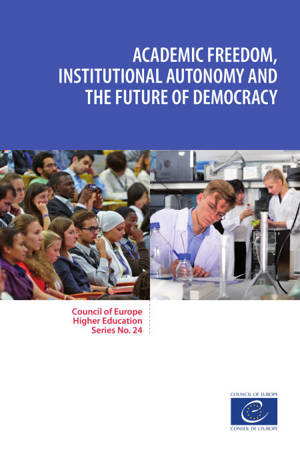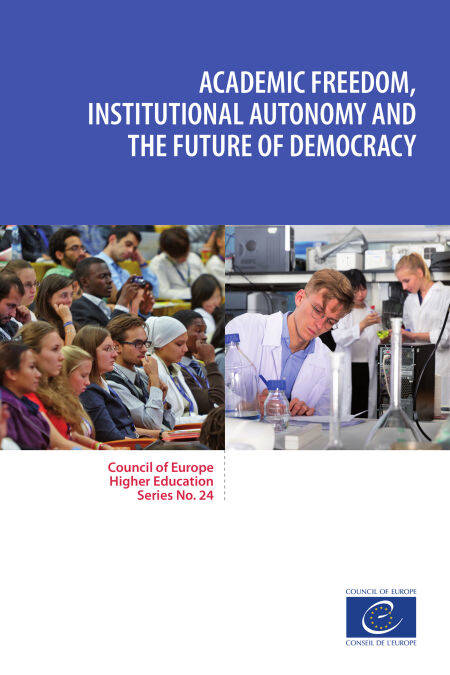
- Afhalen na 1 uur in een winkel met voorraad
- Gratis thuislevering in België vanaf € 30
- Ruim aanbod met 7 miljoen producten
- Afhalen na 1 uur in een winkel met voorraad
- Gratis thuislevering in België vanaf € 30
- Ruim aanbod met 7 miljoen producten
Zoeken
Academic freedom, institutional autonomy and the future of democracy E-BOOK
Sjur Bergan, Tony Gallagher, Ira Harkavy
E-book | Engels
€ 16,99
+ 16 punten
Omschrijving
Academic freedom and institutional autonomy are essential for universities to produce the research and teaching necessary to improve society and the human condition.
Academic freedom and institutional autonomy are increasingly important components of the development of democracy. At the same time, these fundamental democratic values are subject to pressure in many countries.
The relationship between academic freedom, institutional autonomy and democracy is fundamental: it is barely conceivable that they could exist in a society not based on democratic principles, and democracy is enriched when higher education institutions operate on this basis. Higher education institutions need to be imbued with democratic culture and that, in turn, helps to promote democratic values in the wider society. None of these issues are simple and the lines between legitimacy and illegitimacy are sometimes hard to discern, as is illustrated by perspectives from Europe, North America, Asia, Australia and the Mediterranean region.
Academic freedom and institutional autonomy are increasingly important components of the development of democracy. At the same time, these fundamental democratic values are subject to pressure in many countries.
The relationship between academic freedom, institutional autonomy and democracy is fundamental: it is barely conceivable that they could exist in a society not based on democratic principles, and democracy is enriched when higher education institutions operate on this basis. Higher education institutions need to be imbued with democratic culture and that, in turn, helps to promote democratic values in the wider society. None of these issues are simple and the lines between legitimacy and illegitimacy are sometimes hard to discern, as is illustrated by perspectives from Europe, North America, Asia, Australia and the Mediterranean region.
Specificaties
Betrokkenen
- Auteur(s):
- Uitgeverij:
Inhoud
- Taal:
- Engels
Eigenschappen
- Productcode (EAN):
- 9789287190376
- Verschijningsdatum:
- 14/09/2020
- Uitvoering:
- E-book
- Formaat:
- ePub

Alleen bij Standaard Boekhandel
+ 16 punten op je klantenkaart van Standaard Boekhandel
Beoordelingen
We publiceren alleen reviews die voldoen aan de voorwaarden voor reviews. Bekijk onze voorwaarden voor reviews.











